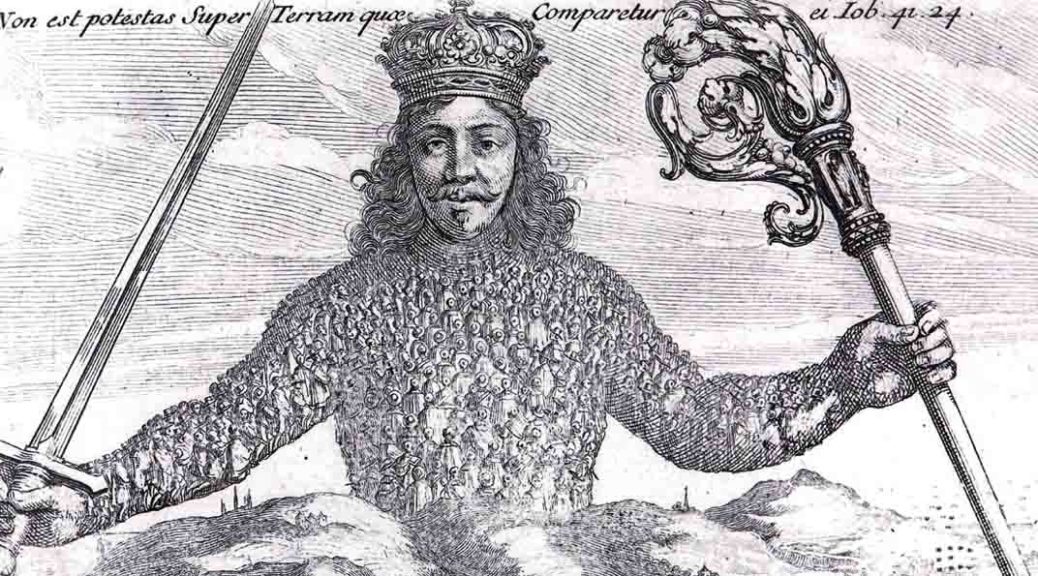
Tag Archives: catholicism

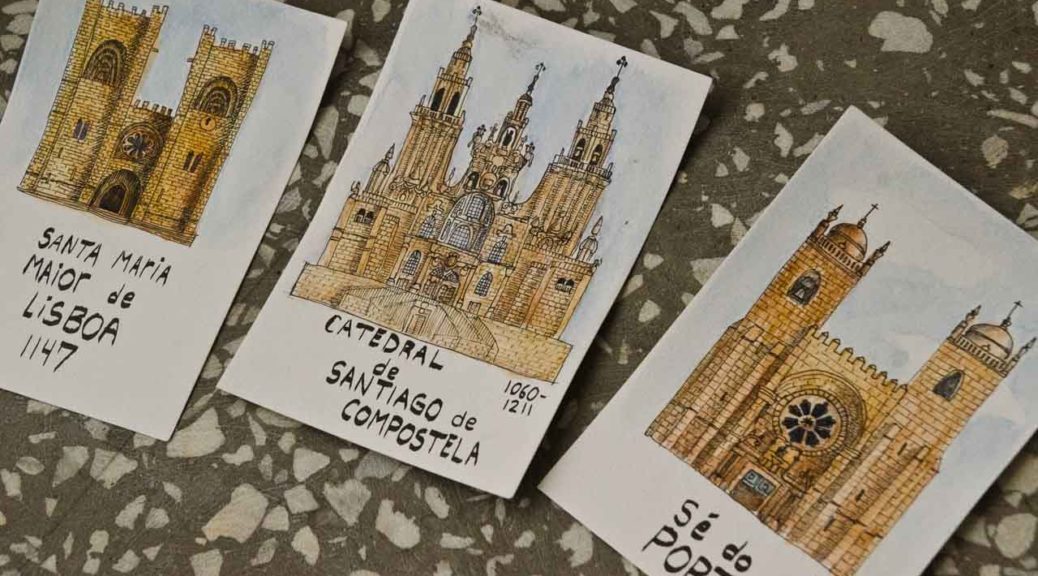
lisboa, porto, santiago
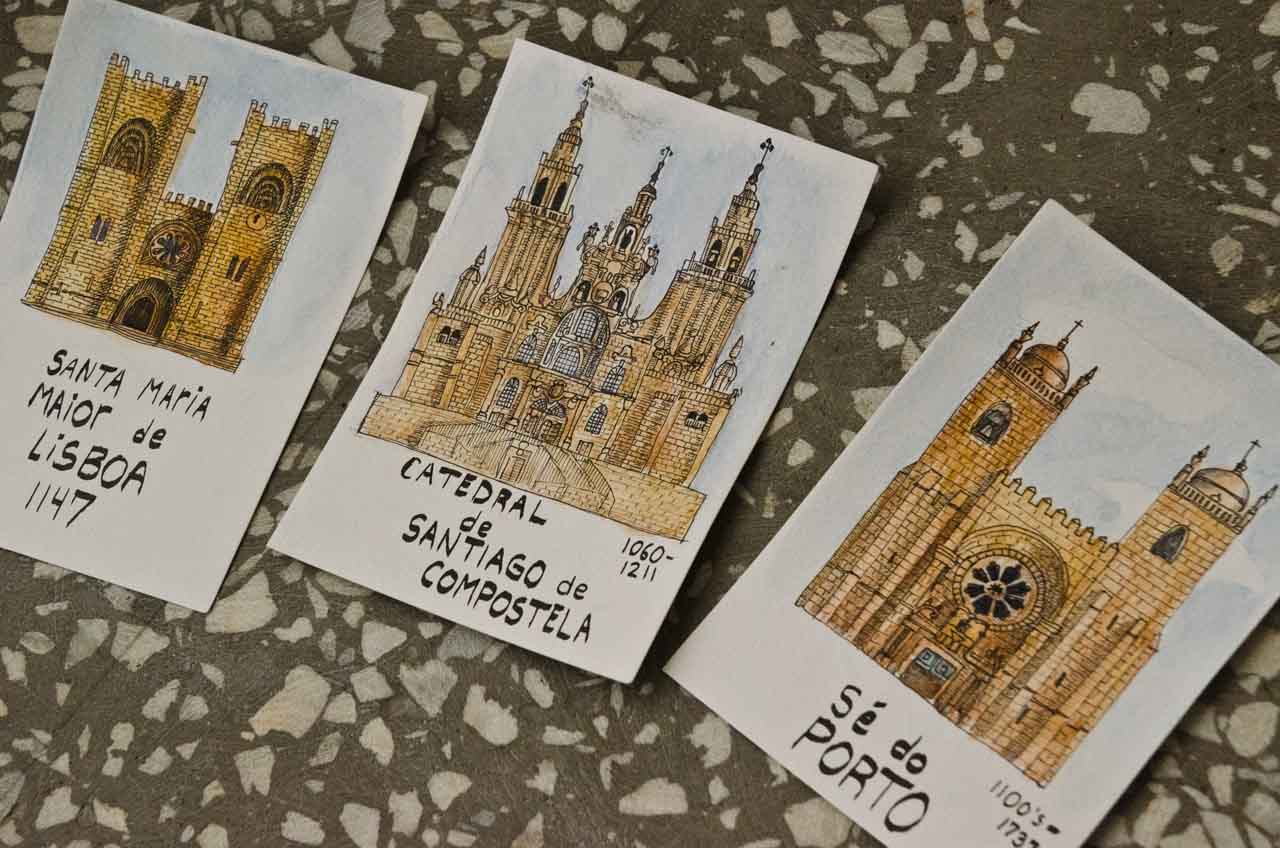
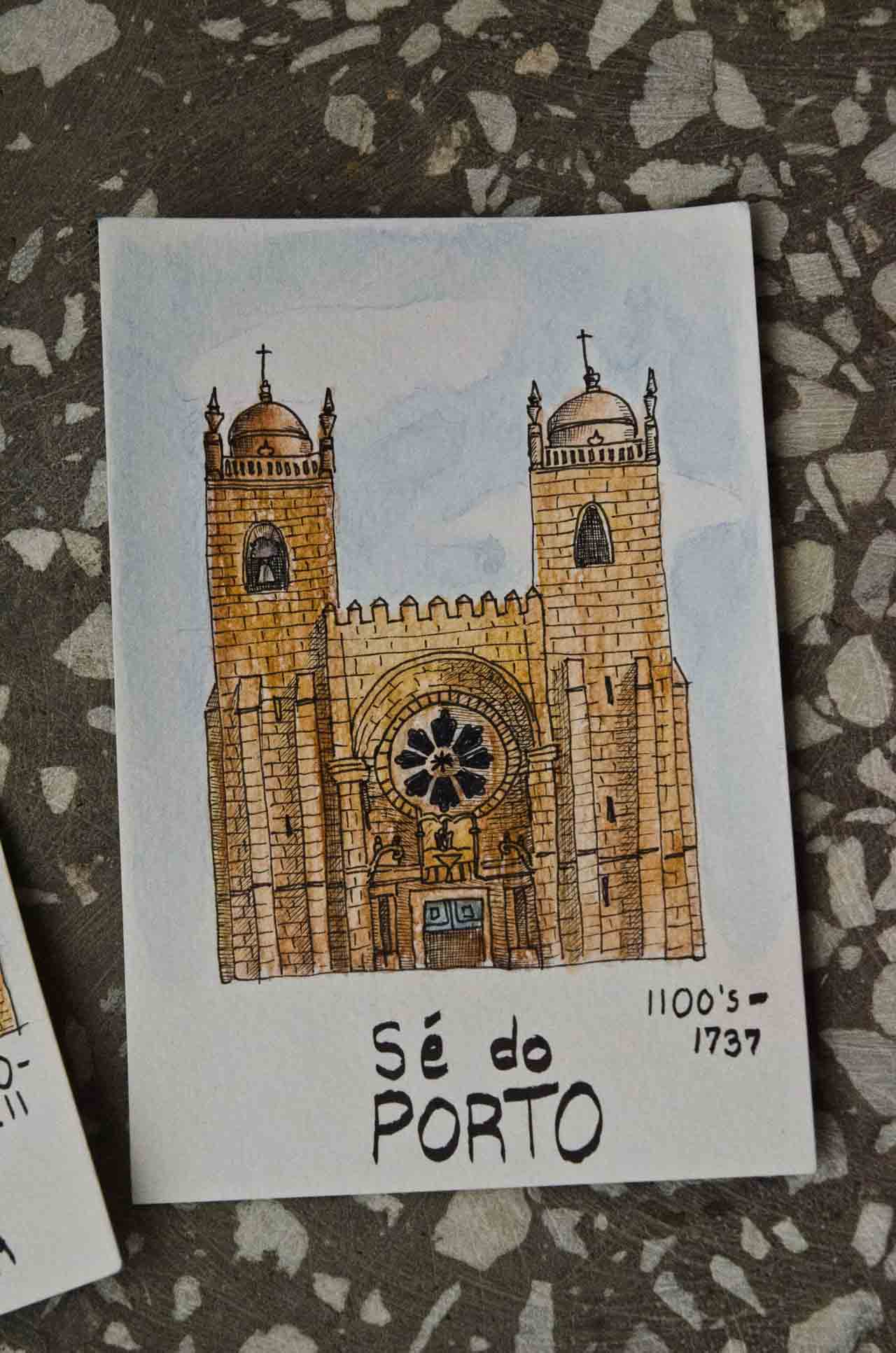
silence
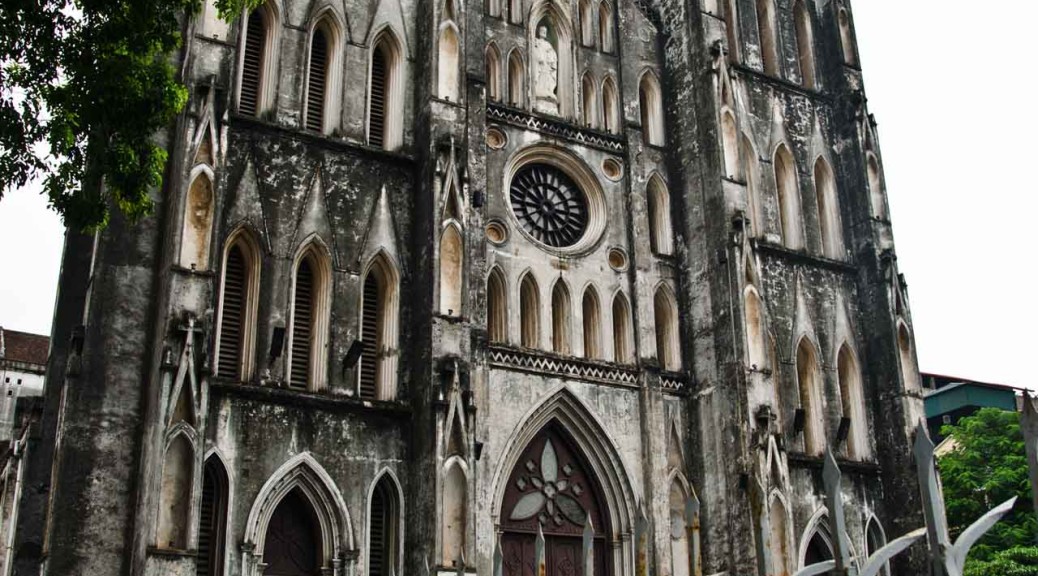
St. Joseph’s Cathedral
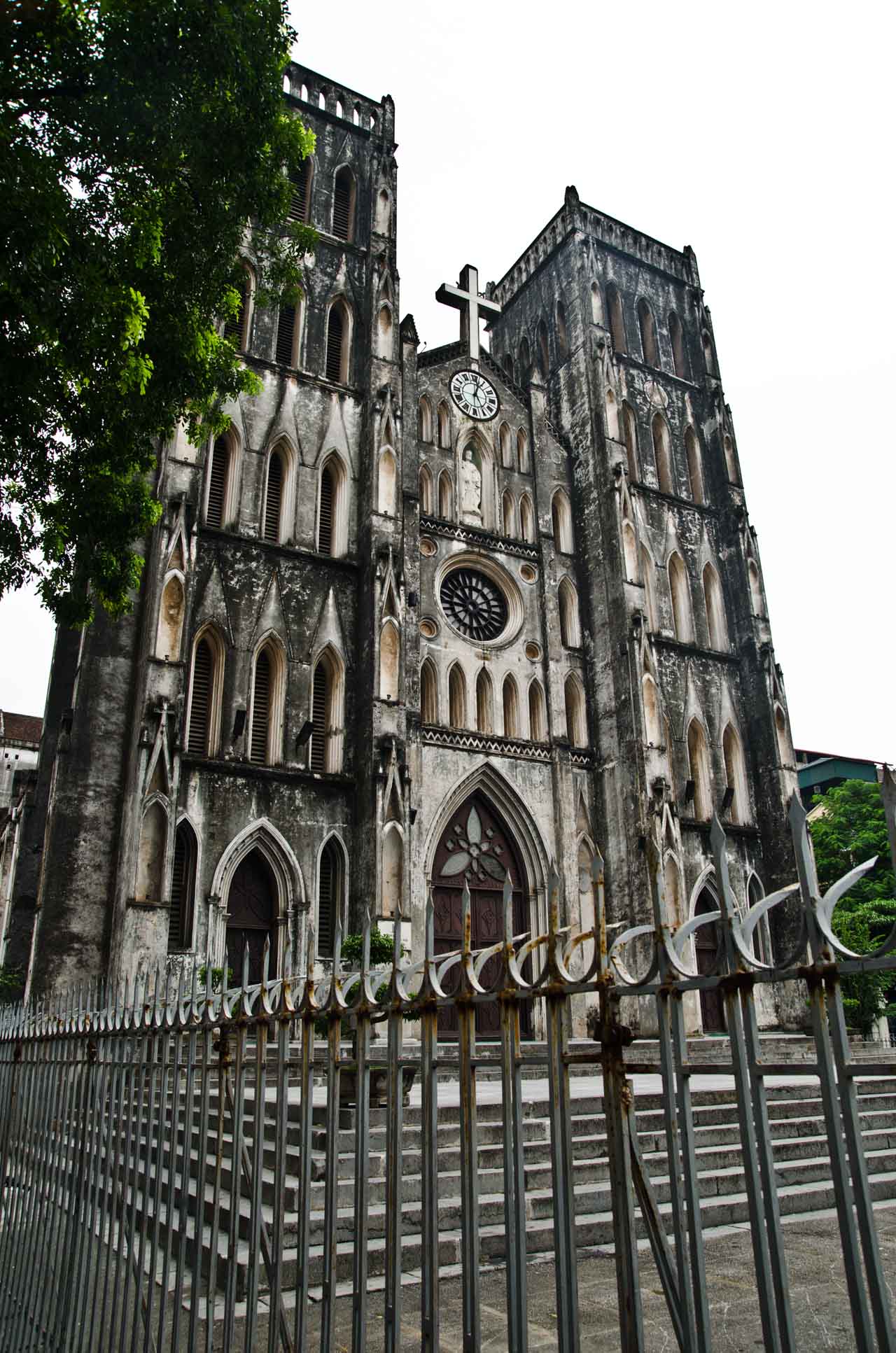 St. Joseph’s Cathedral, Hanoi, Vietnam.
St. Joseph’s Cathedral, Hanoi, Vietnam.
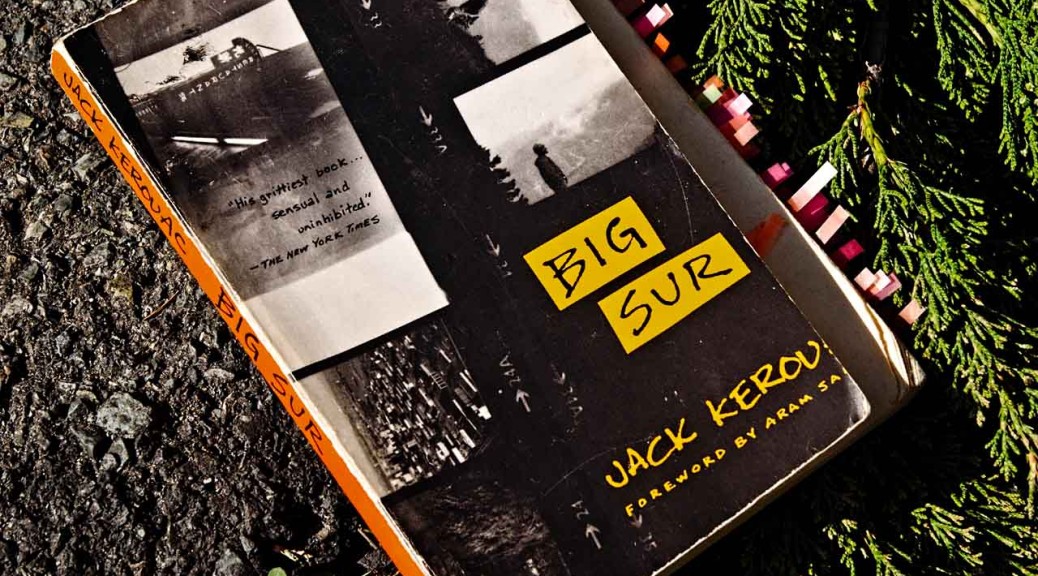
Big Sur
Kerouac, Jack. Big Sur. New York: Penguin, 1992. Print. First ed. 1962.
—

St. Paul
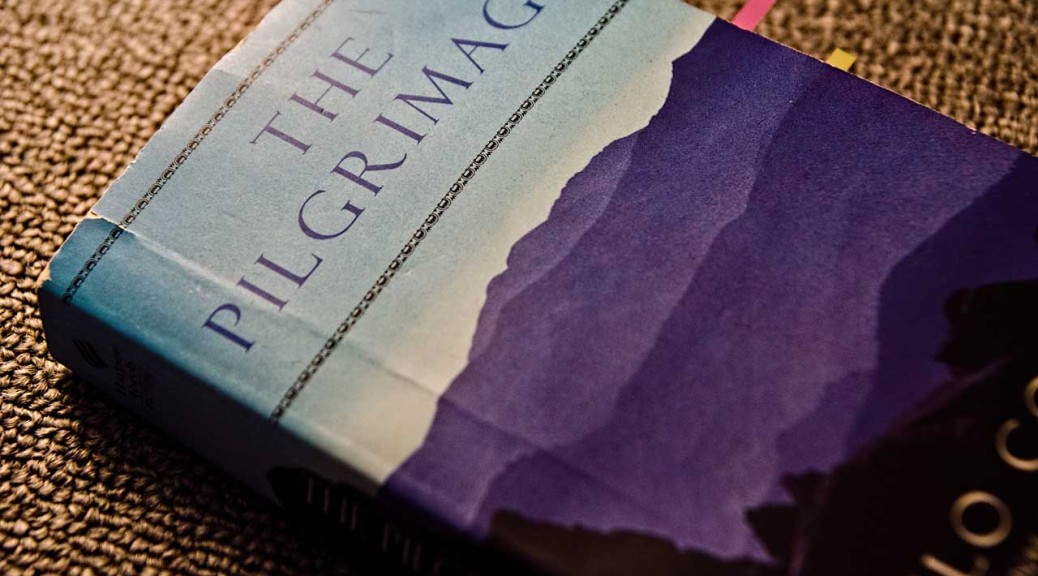
The Pilgrimage
Coelho, Paulo, and Alan R. Clarke. The Pilgrimage: A Contemporary Quest for Ancient Wisdom. New York: HarperTorch, 2004. Print. First ed. 1987.
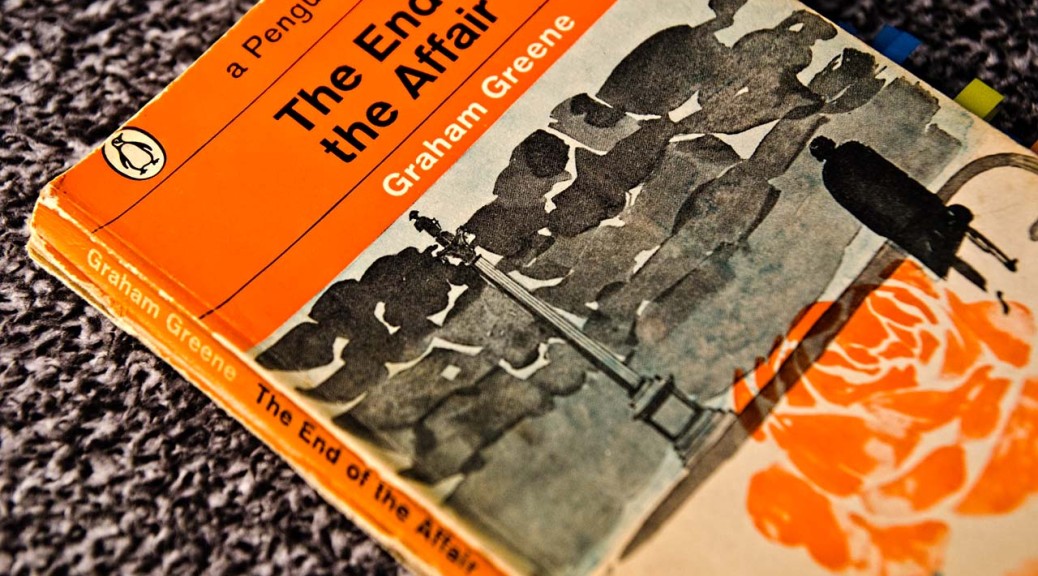
The End of the Affair
Greene, Graham. The End of the Affair. Harmondsworth, Middlesex: Penguin, 1962. Print. First edition 1951.
…
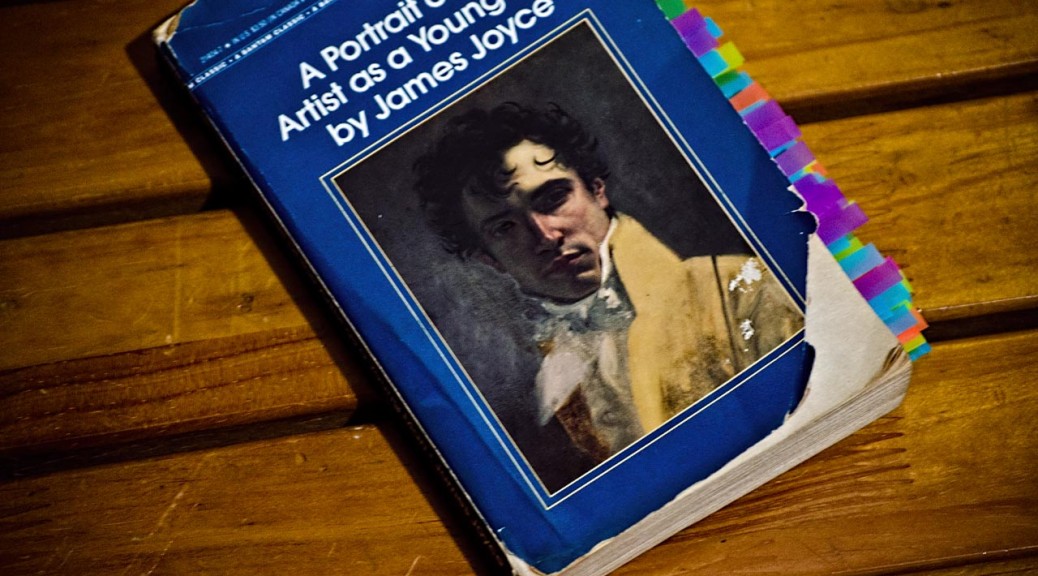
A Portrait of the Artist as a Young Man (III)
Joyce, James. A Portrait of The Artist as a Young Man. New York: Bantam Books, 1992. Print. (First Edition 1916).
—
“sighting in the ascent, through a region of viscid gloom.
“He halted on the landing before the door and then, grasping the porcelain knob, opened the door quickly. He waited in fear, his soul pining within him, praying silently that death might not touch his brow as he passed over the threshold, that the fiends that inhabit darkness might not be given power over him. He waited still at the threshold as the entrance to some dark cave. Faces were there; eyes: they waited and watched.” p. 130
“He had sinned. He had sinned so deeply against heaven and before God that he was not worthy to be called God’s child.” p. 131
“His eyes were dimmed with tears and, looking humbly up to heaven, he wept for the innocence he had lost.” p. 133
“Once soul was lost; a tiny soul: his. It flickered once and went out, forgotten, lost. The end: black cold void waste.” p. 134
“and had first spoked of the kingdom of God to poor fishermen, teaching all men to be meek and humble of heart.” p. 135
“he called first to His side, the carpenters, the fishermen, poor and simple people following a lowly trade, handling and shaping the wood of trees, mending their nets with patience.” p. 135
“His blood began to murmur in his veins, murmuring like a sinful city summoned from its sleep to bear its doom. Little flakes of fire fell and powdery ashes fell softly, alighting on the houses of men. They stirred, waking from sleep, troubled by the heated air.” p. 136
“SUNDAY was dedicated to the mystery of the Holy Trinity, Monday to the Holy Ghost, Tuesday to the Guardian Angels, Wednesday to Saint Joseph, Thursday to the Most Blessed Sacrament of the Altar, Friday to the Suffering Jesus, Saturday to the Blessed Virgin Mary.” p. 141
“the three theological virtues, in faith in the Father Who had created him, in hope in the Son Who had redeemed him, and in love of the Holy Ghost Who had sanctified him;” p. 142
“Frequent and violent temptations were a proof that the citadel of the soul; had not fallen and that the devil raged to make it fall.” p. 147
“Some of the boys had then asked the priest if Victor Hugo were not the greatest French writer. The priest had answered that Victor Hugo had never written half so well when he had turned against the church as he had written when he was a catholic.” p. 150
“He had seen himself, a young and silentmannered priest, entering a confessional swiftly, ascending the altarsteps, incensing, genuflecting, accomplishing the vague acts of the priesthood which pleased him by reason of their semblance of reality and of their distance from it.” p. 152
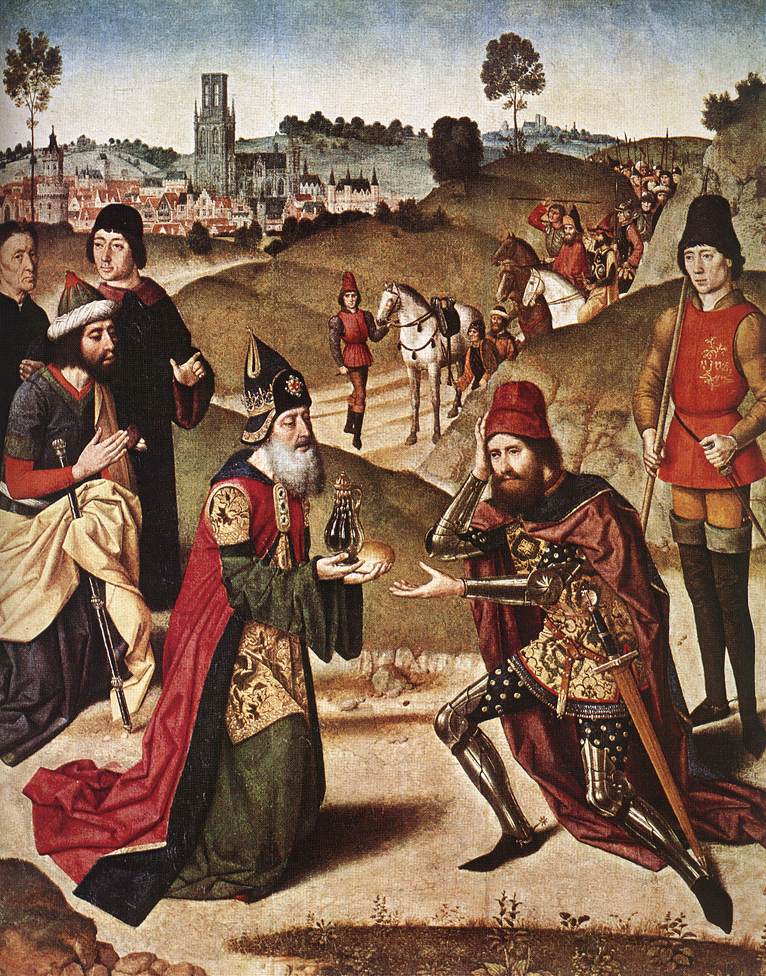
Dieric Bouts,the older. At The Church of Saint Peter, Leuven, Belgium. Created: 1464 – 1467. Via Wikimedia.
“the order of Melchisedec.” p. 153
*****”He drew forth a phrase from his treasure and spoke it softly to himself:
-A day of dapled seaborne clouds.-
The phrase and the day and the scene harmonised in a chord. Words. Was it their colours? He allowed them to glow and fade, hue after hue: sunrise gold, the russet and green of apple orchards, azure of waves, the grey-fringed fleece of clouds. No, it was not their colours: it was the pose and balance of the period.” p. 160
askance
***”They were voyaging across the deserts of the sky, a host of nomads on the march, voyaging high over Ireland, westward bound. The Europe they had come from lay out there beyond the Irish Sea, Europe of strange tongues and valleyed and woodbegirt and citadelled and of entrenched and marshalled races.” p. 161

John Everett Millais – National Portrait Gallery. Via Wikimedia.
“His morning walk across the city had begun; and he foreknew that as he passed the sloblands of Fairview he would think of the cloistral silverveined prose of Newman; that as he walked along the North Strand Road, glancing idly at the windows of the provision ships, he would recall the dark humour of Guido Cavalcanti and smile; that as he went by Baird’s stone cutting works in Talbot Place the spirit of Ibsen would blow though him like a keen wind, a spirit of wayward boyish beauty;”p. 170
“His mind when wearied of its search for the essence of beauty amid the spectral words of Aristotle or Aquinas turned often for its pleasure to the dainty songs of the Elizabethans.” p. 170
“His thinking was a dusk of doubt and selfmistrust, lit up at moments by the lightnings of so clear a splendour that in those moments the world perished about his feet as if it had been fire consumed: and thereafter his tongue grew heavy and he met the eyes of others with unanswering eyes for he felt that the spirit of beauty had folded him round like a mantle and that in reveie at least he had been acquainted with nobility.” p. 171
“he had tried to peer into the social life of the city of cities through the words implere ollam denariorum which the rector had rendered sonorously as the filling of a pot with denaries.” p. 174
“but yet it wounded him to think that he would never be but a shy guest at the feast of the world’s culture and that the monkish learning, in terms of which he was striving to forge out an esthetic philosophy, was held no higher by the age he lived in than the subtle and curious jargons of heraldry and falconry.” p. 174
“the droll statue of the national poet of Ireland.” p. 174
“-Aquinas-answered Stephen-says pulcra sunt quæ visa placent.-” p. 180
“-In so far as it is apprehended by the sight, which I suppose means here esthetic intellection, it will be beautiful. But Aquinas also says Bonum est in quod tendit appetitus. In so far as it satisfies the animal craving for warmth fire is a good. In hell, however, it is an evil.-” p. 180

Nineteenth century Photochrom postcard of the Cliffs of Moher in County Clare in Ireland showing cliffside table and refreshments. Via Wikimedia.
“-These questions are very profound, Mr Dedalus-said the dean.-It is like looking down from the cliffs of Moher into the depth. Many go down into the depths and never come up. Only the trained diver can go down into those depths and explore them and come to the surface again.-” p. 181
“You know Epictetus?-
-An old gentleman-said Stephen coarsely-who said that the soul is very like a bucketful of water.-
-He tells us in his homely way-the dean went on-that he put an iron lamp before a statue of one of the gods and that a thief stole the lamp. What did the philosopher do? He reflected that it was in the character of a thief to steal and determined to buy and earthen lamp next day instead of the iron lamp.-” p. 181
“whether words are being used according to the literary tradition or according to the tradition of the marketplace. I remember a sentence of Newman’s, in which he says of the Blessed Virgin that she was detained in the full company of the saints. The use of the word in the marketplace is quite different. I hope I am not detaining you.-” p. 182
“That?-said Stephen.-Is that called a funnel? Is it not a tundish?-” p. 182
“-And to distinguish between the beautiful and the sublime-the dean added-to distinguish between moral beauty and material beauty. And to inquire what kind of beauty is proper to each of the various arts.” p. 184
“-In pursuing these speculations-said the dean conclusively-there is, however, the danger of perishing of inanition.” p. 184

The British Library – Image taken from page 274 of ‘Finland in the Nineteenth Century: by Finnish authors. Illustrated by Finnish artists. Via Wikimedia.
“-I may not have his talent-said Stephen quietly.
-You never know-said the dean brightly.-We never can say what is in us. I most certainly should not be despondent. Per aspera ad astra.-“

A Portrait of the Artist as a Young Man (II)
Joyce, James. A Portrait of The Artist as a Young Man. New York: Bantam Books, 1992. Print. (First Edition 1916).
—
“The sentence of Saint James which says that he who offends against one commandment becomes guilty of all had seemed to him first a swollen phrase until he had began to grope in the darkness of his own state. From the evil seed of lust all other deadly sins had spring forth: pride in himself and contempt of others, covetousness in using money for the purchase of unlawful pleasures, envy of those whose vices he could not reach to and calumnious murmuring against the pious, gluttonous enjoyment of food, the dull glowering anger amid which he brooded upon his longing, the swamp of spiritual and bodily sloth in which his whole being had sunk.” p. 100
Francis Xavier
“the apostle of the Indies.” p. 102
Ignatius of Loyola
“A retreat, my dear boys, signifies a withdrawal for a while form the cares of our life, the cares of this workaday world, in order to examine the state of our conscience, to reflect on the mysteries of holy religion and to understand better why we are here in this world.” p. 104
“What doth it profit a man to gain the whole world if he suffer the loss of his immortal soul? Ah, my dead boys, believe me there is nothing in this wretched world that can make up for such a loss.” p. 104
“Banish from your minds all worldly thoughts, and think only of the last things, death, judgment, hell and heaven. He who remembers these things, says, Ecclesiastes, shall not sin for ever. He who remembers the last things will act and think with them always before his eyes.” p. 105
“What did it avail then to have been a great emperor, a great general, a marvellous inventor, the most learned of the learned? All were as on before the judgment seat of God.” p. 107
“The stars of heaven were falling upon the earth like the figs cast by the figtree which the wind has shaken. The sun, the great luminary of the universe, had become as sackcloth of hair. The moon was blood red. The firmament was a scroll rolled away. The archangel Michael, the prince of the heavenly host, appeared glorious and terrible against the sky. With one foot on the sea and one foot on the land he blew from the archangelical trumpet the brazen death of time. The three blasts of the angel filled all the universe. Time is, time was, but time shall be no more. At the last blast the souls of universal humanity throng towards the valley of Jehosaphat, rich and poor, gentle and simple, wise and foolish, good and wicked.” p. 107
Valley of Josaphat
Absalom
“O you who present a smooth smiling face to the world while your soul within is a foul swamp of sin, how will it fare with you in that terrible day?” p. 108
“Death is the end of us all. Death and judgement, brought into the world by the sin of our first parents, are the dark portals that close our earthly existence, the portals that open into the unknown and the unseen, portals through which every soul must pass, alone, unaided save by its good works, without friend or brother or parent or master to help it, alone and trembling.” p. 108
“Theologians consider that it was the sin of pride, the sinful thought conceived in an instant: non serviam: I will not serve. That instant was his ruin. He offended the majesty of God by the sinful thought of one instant and God cast him out of heaven into hell for ever.” p. 111
“Adam and Eve were then created by God and placed in Eden, in the plain of Damascus, that lovely garden resplendent with sunlight and colour, teeming with luxuriant vegetation. The fruitful earth gave them her bounty: beasts and birds were their willing servants: they knew not the ills our flesh is heir to, disease and poverty and death: all that a great and generous God could do for them was done.” p. 112
“-Alas, my dear little boys, they too fell. The devil, once a shining angel, a son of the morning, now a foul fiend came n the shape of a serpent, the subtlest of all the beasts of the field. He envied them. He, the fallen great one, could not bear to think that man, a being of clay, should possess the inheritance which he by his sin had forfeited for ever.” p. 112
“the damned are so utterly bound and helpless that, as a blessed saint, Saint Anselm, writes in his book on Similitudes, they are not even able to remove from the eye a worm that gnaws it.” p. 114
“-They lie in exterior darkness. For, remember, the fire of hell gives forth no light. As, as the command of God, the fire of the Babylonian furnance lost its heat by not its light so, at the command of God, the fire of hell, while retaining the intensity of its heat, burns eternally in darkness. It is a neverending storm of darkness, dark flames and dark smoke of burning brimstone, amid which the bodies are heaped one upon another without even a glimpse of air. Of all the plagues with which the land of the Pharaohs was smitten one plague alone, that of darkness, was called horrible.” p. 114
” And then imagine this sickening stench, multiplied a millionfold and a millionfold again from the millions upon millions of fetid carcasses massed together in the reeking darkness, a huge and rotting human fungus. Imagine all this and you will have some idea of the horror of the stench of hell.” p. 115
“Depart from me, ye cursed, into everlasting fire which was prepared for the devil and his angels!-” p. 118
“He passed up the staircase and into the corridor along the walls of which the overcoats and waterproofs hung like gibbeted malefactors, headless and dripping and shapeless. And at every step he feared that he had already died, that his soul had been wrenched forth of the sheath of his body, that he was plunging headlong though space.” p. 118
“The English lesson began with the hearing of the history. Royal persons, favourites, intriguers, bishops, passed like mute phantoms behind their veil of names. All had died: all had been judged. What did it profit a man to gain the whole world if he lost his soul? At last he had understood: and human life lay around him, a plain of peace whereon antilike men laboured in brotherhood, their dead sleeping under quiet mounds.” p. 119-120
“-Sin, remember, is a twofold enormity. It is a base conssent to the promptings of our corrupt nature to the lower instincts, to that which is gross and beastlike; and it is also a turning awat from the counsel of our higher nature, from all that is pure and holy, from the Holy God Himself. For this reason mortal sin is punished in hell by two different forms of punishment, physical and spiritual.” p. 121
***”Now imagine a mountain of sand, a million miles high, reaching from the earth to the farthest heavens, and a million miles broad, extending to remotest space, and a million miles in thickness: and imagine such an enormous mass of countless particles of sand multiplied as often as there are leaves in the forest, drops of water in the mighty ocean, feathers on birds, scales on fish, hairs on animals, atoms in the vast expanse of the air: and imagine that as the end of every million years a little bird came to that mountain and carried away in its beak a tiny grain of that sand. How many millions upon millions of centuries would pass before that bird had carried away even a square foot of that mountain, how many eons upon eons of ages before it had carried away all. Yet at the end of that immense stretch of time not even one instant of eternity could be said to have ended; even then, at the end of such a period, after that eon of time the mere thought of which makes our very brain reel dizzily, eternity would have scarcely begun.” p. 125-126
“The ticking went on unceasingly; and it seemed to this saint that the sound of the ticking was the ceaseless repetition of the words; ever, never. Ever to be in hell, never to be in heaven; ever to be shut off from the presence of God, never to be shut off from the presence of God, never to enjoy the beatific vision; ever to be eaten with flames, gnawed by vermin, goaded with burning spikes,” p. 126
“-As sin, an instant of rebellious pride of the intellect, made Lucifer and a third part of the cohorts of angels fall from their glory.” p. 127-128.
